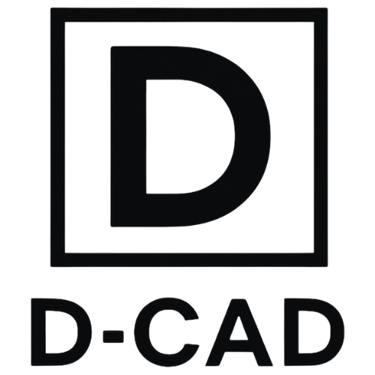Project Highlights
Showcasing our innovative design and analysis projects.


1. Machine Foundation Essentials - 2-Day Short Course
Format: Live online (Zoom)
Duration: 2 full days (6-8 hours/day)
Target audience: Practicing civil/structural engineers, design office staff, EPC engineers who need fast, practical know-how.
Core modules:
•Introduction: types of machines & foundation objectives
•What data you must get from machine suppliers & geotech teams
•Static sizing: loads, eccentricity, foundation mass concepts
•Intro to dynamics: natural frequency vs operating speed (practical rules of thumb)
•Quick checks: permissible vibration limits & acceptance criteria (ISO/IS/DIN)
•Case study + Q&A (real project: sizing + short dynamic check)
Learning outcomes:
•Confidently size a basic machine foundation for static loads.
•Quickly identify dynamic red flags and what data to request.
•Produce a 1-page system data and design checklist for project use.
Prerequisites: Basic strength of materials & geotech familiarity.
Deliverables: Slide pack, machine/foundation data template, 1-page quick checklist, certificate.
Suggested fee (online): ₹8,000 – ₹12,000 per participant
Batch size & revenue (example): 60 seats × ₹12k = ₹7.2 L
Selling point: Fast, practical, immediately applicable for busy engineers.


2. Dynamic Design & FEA for Machine Foundations — 3-Day Advanced
Format: Live online + hands-on demos (ANSYS/ABAQUS/Structural package) + sample FE files provided
Duration: 3 days (6–8 hrs/day)
Target audience: Senior design engineers, consultants who do FE modeling, NPI teams at EPCs.
Core modules:
•Recap of system dynamics (mass, stiffness, damping, rotor centerline mass lumping)
•Modeling best practices: pedestals, raft, soil springs, boundary conditions
•Free vibration: extracting natural frequencies & mode shapes in FE
•Forced vibration: steady-state response, resonance checks & harmonic analysis
•Modeling machine mass at rotor centerline, eccentricities, and load application
•Interpreting FE results for practical design actions (stiffening, tuning, isolation)
•Hands-on demo: build a simple mill-foundation FE model and run modal + harmonic analysis
•Case studies & comparative FEM vs SDM learnings
Learning outcomes:
•Build a realistic FE model for machine-foundation studies.
•Perform modal and forced response analyses and interpret the results for design.
•Produce design decisions: change pedestal/raft stiffness, tuning, or isolation options.
Prerequisites: Familiarity with FE concepts; willingness to follow software demo.
Deliverables: FE example files, modeling checklist, worked case study, certificate.
Suggested fee (online): ₹22,000 – ₹30,000 per participant
Batch size & revenue (example): 40 seats × ₹25k = ₹10 L
Selling point: Deep technical value — premium course for decision makers and modelers.
Format: Online or hybrid (online + one optional 1-day site demonstration)
Duration: 2 days
Target audience: Geotech engineers, foundation designers, consultants working with pile foundations for machines.
Core modules:
•Soil parameters that matter for dynamics (G, damping, Ks, Cv correlations)
•Equivalent soil springs & p–y approach for lateral piles
•Vertical vs lateral vs rotational pile stiffness; group effect and reduction factors
•Translating SPT / CPT / lab data to dynamic parameters and Ks estimation
•Using pile test data and interpreting pile load/deflection for stiffness
•Design examples: pile-supported mill foundations and group stiffness estimation
Learning outcomes:
•Convert site geotech data to dynamic soil/pile springs for FE modeling.
•Estimate pile/group stiffness and assess suitability for machine foundations.
•Specify pile load tests for stiffness verification and interpret results.
Prerequisites: Basic geotech knowledge.
Deliverables: Soil→spring spreadsheet, pile stiffness templates, certificate.
Suggested fee (online): ₹12,000 – ₹18,000 per participant
Batch size & revenue (example): 50 seats × ₹15k = ₹7.5 L
Selling point: Fills a big gap — most mechanical/civil designers miss realistic pile stiffness.
3. Pile & Soil Dynamics for Machine Foundations 2-Day Specialist
Format: Hybrid: 1 day classroom + 1 day field demonstration (preferred)
Duration: 2 days
Target audience: Plant maintenance engineers, consultants doing field diagnostics, commissioning teams.
Core modules:
•Instrumentation & sensors: what to measure and why (accelerometer, velocity transducers)
•Measurement protocols (locations, mounting, sampling, prechecks)
•Time history, FFT, envelope analysis, coherence & cross-spectrum basics
•Interpreting spectra: identifying imbalance, misalignment, resonance, structural amplification
•Short-term corrective measures vs long-term fixes (balancing, pedestal stiffening, isolation)
•Report writing and acceptance criteria (how to present results to clients/operation teams)
Learning outcomes:
•Run a basic vibration test and interpret FFT signatures.
•Identify common root causes and recommend field corrections.
•Write a concise test report with actionable recommendations.
Prerequisites: None (practical oriented).
Deliverables: Test checklist, reporting template, certificate.
Suggested fee (hybrid): ₹15,000 – ₹25,000 per participant
Batch size & revenue (example): 30 seats × ₹20k = ₹6 L
Selling point: Very practical; clients pay well for troubleshooting skills that reduce downtime.
4. Vibration Testing & Troubleshooting — 2-Day Practical


5. Premium 5-Day Bootcamp — “Machine Foundations Masterclass
Format: Paid in-depth (Hybrid or in-person in metro city). Includes hands-on FE labs and a field demo.
Duration: 5 days (intensive)
Target audience: Consultants and senior engineers who want end-to-end capability.
Modules: Combination of courses 1–4 with extended hands-on FE labs, group project, and certification exam.
Fee: ₹40,000 – ₹75,000 per participant (in-person premium)
Batch size & revenue (example): 20 seats × ₹50k = ₹10 L
Selling point: High ticket, high impact — attractive to corporates for upskilling key staff.




Gallery
Explore our innovative solutions in action.










